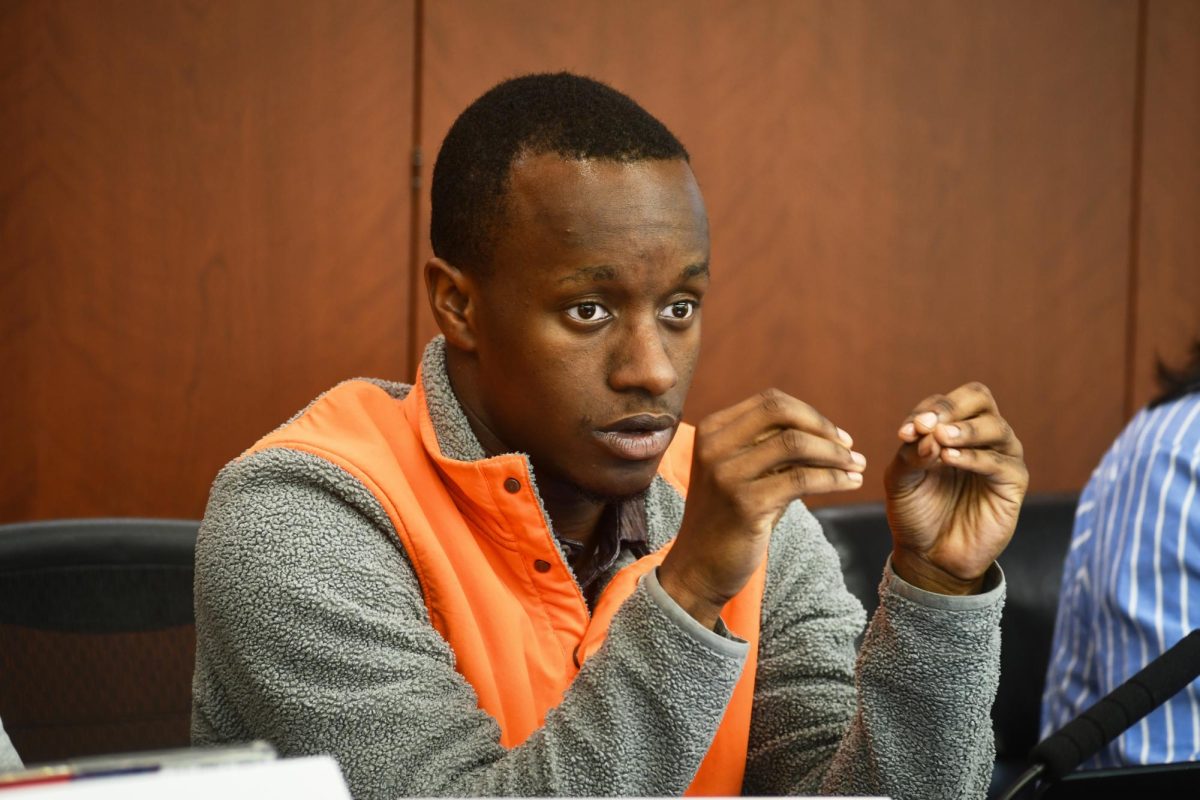The Student Bar Association Senate amended SBA bylaws to allow any member of the law school student body to act as the body’s parliamentarian and change the confirmation process from an appointment to senate-wide vote at a meeting Tuesday.
SBA Sen. John DeMarco, who sponsored the act that activated the bylaw change, said the amendment will allow the Rules and Constitution Committee to nominate a non-senate parliamentarian, a position the body created to help conduct senate meetings, who the SBA Senate will then vote to approve. DeMarco said the new procedure is more “democratic” than the previous system, which was outlined in Robert’s Rules of Order — a manual of parliamentary procedure that the SBA abides by — and allowed the committee to appoint a parliamentarian without full senate approval.
“Anyone in the student body at the law school can serve as a parliamentarian,” DeMarco said. “This we believe will serve to make it more unbiased and more fair in their actions.”
SBA Sen. Elan Resiner, who created the act with DeMarco, said last year the senate did not have a parliamentarian because the Rules and Constitution Committee Chair never appointed a senator to the position. He said having a non-SBA student advise the body on existing rules is a “good step” for the SBA Senate to ensure they are following procedure according to the constitution, bylaws and rules of order during meetings.
The SBA Supreme Court issued an advisory opinion to the senate about a previous resolution, which granted expanded powers to the SBA executive vice president during senate meetings. The court found the fourth rule of the resolution, which delegated power to the executive vice president to temporarily suspend members from senate meetings, to be unconstitutional because it “overlaps” with the power to expel a member from a meeting, which is granted to the senate in the SBA constitution.
Despite SBA Senate consensus to amend the resolution and eliminate the unconstitutional aspect from legislation, SBA Sen. Elan Reisner motioned to send a “full senate request” back to the SBA Supreme Court to ask for further clarification about aspects of the court’s response. Reisner asked the court to clarify what a majority vote of the “entire membership” means, the definition of “notice,” what the correct procedure is for changing Robert’s Rules of Order and whether or not delegating suspension power to the SBA’s executive vice president is constitutional without a bylaw amendment.
Resiner said since the SBA Supreme Court’s initial advisory opinion is not binding and does not require the SBA Senate to strike any guidelines from the resolution, a full body’s request would allow the court to alter the resolution.
“I think we need binding legislation,” Resiner said. “I’m making a full senate request for binding resolution, we need clarity on the entire membership clause. We also need to set a precedent that an EVP does not have this power.”
Executive Vice President Nigel Walton said the full SBA Senate request is “weightier” than an advisory opinion because the results require the body to adopt the court’s suggestions. He said he would not suspend members from the senate during meetings regardless of the outcome of the full senate request.
The SBA Senate voted 6-0 with one abstention to send the request to the court.
Walton held a moment of silence for 15 seconds in memory of Marcellus Williams, who a prison in Missouri executed Tuesday evening following prosecutor’s efforts to halt the execution due to pleas of innocence. Walton said he “cares deeply” about death penalty cases as a law student because he has friends and family in prison.
“I think he was an innocent man, and I think the system did not work for him like it should, and it doesn’t work for a lot of people who have, just to be honest, the same skin tone as I have,” Walton said.
The SBA Senate will meet next on Oct. 8 at 8:50 p.m. in the LLC.





